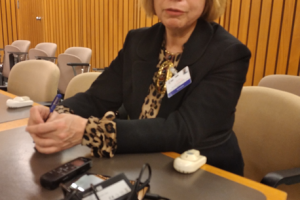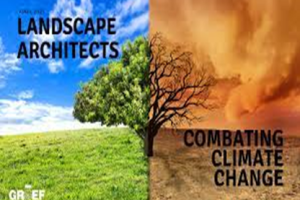In recent years, global warming has emerged as one of the most pressing challenges facing our planet. The Earth’s climate is rapidly changing, and the consequences of this transformation are becoming increasingly evident. Rising temperatures, melting ice caps, extreme weather events, and sea-level rise are just a few of the alarming indicators that signal the need for urgent action on a global scale.
Some research indicated that the causes of global warming are various. The burning of fossil fuels, deforestation, and industrial activities have released vast amounts of greenhouse gases into the atmosphere. These gases, primarily carbon dioxide (CO2) and methane (CH4), trap heat and contribute to the greenhouse effect, leading to a gradual increase in global temperatures.
One of the most significant impacts of global warming is the disruption of Earth’s delicate ecosystems. Rising temperatures and changing weather patterns threaten biodiversity, putting countless plant and animal species at risk of extinction.
Moreover, global warming has intensified the frequency and severity of extreme weather events. Heatwaves, droughts, hurricanes, and wildfires have ravaged communities around the world, causing immense human suffering, loss of life, and economic damage. Developing nations, in particular, bear the brunt of these disasters, as they often lack the resources to adequately prepare for and recover from such events.
Recognizing the urgency of the situation, governments, international organizations, and civil society are increasingly taking steps to address the global problem. The Paris Agreement, a landmark international accord adopted in 2015, aims to limit global temperature rise to well below 2 degrees Celsius above pre-industrial levels and to pursue efforts to limit the increase to 1.5 degrees Celsius. The agreement sets the stage for countries to collectively reduce greenhouse gas emissions, transition to clean energy sources, and strengthen resilience to climate impacts.
However, despite these efforts, the current trajectory of global warming remains alarming. The Inter-governmental Panel on Climate Change (IPCC) warns that without significant and immediate action, the world is on track to surpass the 1.5 degrees Celsius threshold within the next few decades, with catastrophic consequences for ecosystems and human societies.
Addressing global warming requires a comprehensive and multifaceted approach. Governments must enact ambitious policies to reduce carbon emissions, promote renewable energy sources,
and invest in sustainable infrastructure. Businesses must prioritize sustainable practices, reduce their carbon footprint, and embrace circular economy principles. Individuals can contribute by adopting energy-efficient habits, supporting clean technologies, and advocating for climate action.
Crucially, collaboration and international cooperation are essential to tackle the global nature of this crisis. Sharing knowledge, technology, and resources can accelerate progress in mitigating and adapting to global warming. Developed nations have a responsibility to support developing countries in their efforts to transition to low-carbon economies and build resilience against climate impacts.
The fight against global warming is not just about protecting the environment; it is about safeguarding the future of humanity. It requires a collective commitment to preserve our planet for future generations. The time for action is now, and every individual, community, and nation must play a part in shaping a sustainable and resilient future.
Especially developing countries are much affected by the global warming, even without developed industrial sectors. Most countries are working on the issue. Ethiopia also started the Green Legacy Program 2019 with the aim of combating deforestation, restoring degraded lands, and mitigating the impacts of climate change. While it primarily focuses on reforestation and afforestation, the program indirectly contributes to addressing global warming in several ways like carbon sequestration, ecosystem restoration, awareness and education, that aims to raise awareness and educate the public about the importance of environmental conservation and climate change and other contributions. According to the Ethiopian Ministry of Agriculture report, the country’s forest coverage has risen to 17 percent from 3 percent since the initiative was started.
Recently, in a press conference, UN Secretary-General António Guterres said humanity is in the hotseat. The World Meteorological Organization (WMO) and the European Commission’s Copernicus Climate Change Service confirmed that July is on track to be the hottest month ever recorded in human history. The data reveals alarming trends, including the hottest three-week period, the three hottest days, and the highest ocean temperatures for this time of year. The consequences of these extreme temperatures are devastating, with reports of children being affected by monsoon rains, families fleeing from wildfires, and workers suffering from heat-related illnesses.
Guterres emphasizes that the era of global warming has transitioned into an era of global boiling, characterized by unbearable heat and unbreathable air. He holds humans accountable for these changes and calls for immediate and decisive action from world leaders.
To mitigate the effects of climate change, Guterres urges G20 countries, responsible for 80% of global emissions, to set ambitious emissions reduction targets. Developed countries should aim for net-zero emissions by 2040, while emerging economies should strive for the same by 2050, with support from developed nations.
Additionally, a just and equitable transition from fossil fuels to renewables is necessary, with credible plans to exit coal by 2030 for the Organization for Economic Cooperation and Development (OECD) countries and 2040 for the rest of the world. He elaborated that it is crucial to achieve ambitious renewable energy goals aligned with the 1.5°C temperature limit and attain net-zero electricity by 2035 in developed countries and 2040 elsewhere, he elaborated.
He also said that the importance of action beyond governments, urging companies, cities, regions, and financial institutions to align their plans with the United Nations’ net-zero standard. Financial institutions should divest from fossil fuels and invest in renewables, while fossil fuel companies must provide transparent transition plans.
The second area requiring accelerated action is adaptation, as extreme weather events become more frequent. All countries must protect their populations from heatwaves, floods, storms, droughts, and fires. Developed countries should double adaptation finance by 2025 and allocate at least half of all climate finance to adaptation. Early warning systems must be implemented globally by 2027, he added.
Climate finance is another critical aspect, with developed countries urged to fulfill their commitment of providing $100 billion annually to support climate initiatives in developing nations. The Green Climate Fund should also be fully replenished, and the loss and damage fund must be operationalized. The speaker calls for a course correction in the global financial system, including putting a price on carbon and reforming the approaches to risk by multilateral development banks, he concluded.
US SECRETARY ANTONY J. BLINKEN also said that both humanity and the world are in existential danger due to climate change. As a result of natural disasters and a lack of water, it is already endangering lives and means of subsistence. Recognizing the urgency of addressing the climate crisis, we have launched a comprehensive government-wide initiative to reduce the emission of harmful greenhouse gases, raise international climate ambitions, and improve the ability of the United States and the rest of the world to adapt to the changing environment of the planet.
BY EYUEL KIFLU
THE ETHIOPIAN HERALD THURSDAY 10 AUGUST 2023





